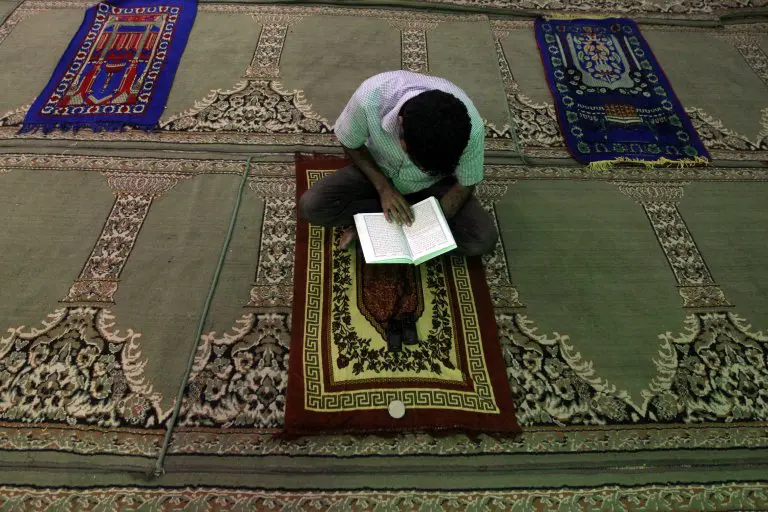
Photo: AHMAD AL-RUBAYE / AFP
Britain’s High Court has ruled that banning prayer at ‘Britain’s strictest school’ is lawful.
A Muslim student had challenged the ban at Michaela Community School in Wembley, North West London, which was imposed in March last year “against a backdrop of events including violence, intimidation and appalling racial harassment” against teachers.
The school, which was founded by headteacher Katherine Birbalsingh, is regarded as one of the best in the country. It imposes strict rules on pupils, including silence in corridors, finishing every interaction with teachers with “Sir” or “Miss”, and groups of more than four pupils are not allowed in the schoolyard.
The school also maintains a policy of religious neutrality. However, last year some Muslim students began praying on the school grounds and allegedly attempted to pressure others into becoming more devout. This led to incidents of violence, intimidation, and even racial harassment of teachers, Birbalsingh said. This led to the school’s governing body banning the prayer rituals, which “restored calm and order.”
“Last year, we watched our Muslim pupils put under pressure by a tiny number of others to fast, to pray, to drop out of the choir, to wear a hijab,” Birbalsingh added in a statement on Tuesday.
“I watched one of my black teachers racially abused and intimidated, another teacher who had her personal home nearly broken into, and another with a brick thrown through her window.”
— Katharine Birbalsingh (@Miss_Snuffy) January 17, 2024
A Muslim student launched a legal challenge against the ban, arguing that it violated her right to religious freedom, but the High Court sided with the school. In an 83-page verdict, judge Mr. Justice Linden said:
It seems to me that this is a case … where the claimant at the very least impliedly accepted, when she enrolled at the school, that she would be subject to restrictions on her ability to manifest her religion.
She knew that the school is secular and her own evidence is that her mother wished her to go there because it was known to be strict.
She herself says that, long before the prayer ritual policy was introduced, she and her friends believed that prayer was not permitted at school and she therefore made up for missed prayers when she got home.
He added: “The disadvantage to Muslim pupils at the school caused by the prayer ritual policy is in my view outweighed by the aims which it seeks to promote in the interests of the school community as a whole, including Muslim pupils.”
Education secretary Gillian Keegan backed the High Court’s decision. “I have always been clear that headteachers are best placed to make decisions in their school,” she said. “Michaela is an outstanding school and I hope this judgement gives all school leaders the confidence to make the right decisions for their pupils.”
The decision comes just a couple of days after the Italian government vowed to stop schools closing for Eid.
Education secretary Giuseppe Valditara said schools will no longer be allowed to “mark a holiday which is not recognised by the state” following the controversial decision by a school near Milan to close on April 10th, the date of Eid al-Fitr, the Muslim festival marking the end of Ramadan.
Teachers said there was little point opening the school on that date since 40% of pupils were Muslim and unlikely to attend.
